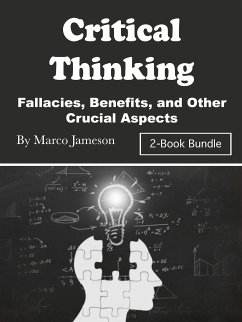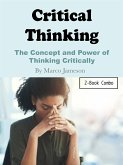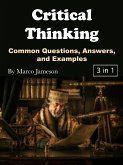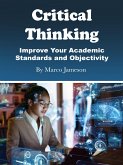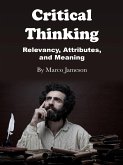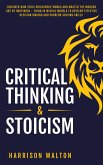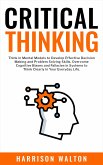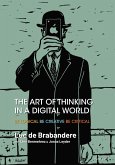The following topics are included in this 2-book combo:
Book 1: What makes someone a critical thinker?
The attributes of such a person are elaborately described in this book. Alongside with that, the book highlights the many benefits of critical thinking, an often-neglected brain skills society needs to improve on.
However, most of the book is focused on relevant and irrelevant reasoning. So often, we attribute certain consequences to the wrong causes. We jump to conclusions based on limited information, emotions, or generalizations. This book will clear all that up by giving you new insights to determine what is relevant and what is not.
Book 2: What is a fallacy? Many people may have heard the word before but don’t grasp the magnitude of it. They erroneously assume that they aren’t guilty of embracing half-truths or false conclusions. And yet, those are often the ones who do it the most.
In this guide, you will receive greater comprehension of what fallacies are and close your blind spot to the truth of things.
Later, the author goes on to instruct you on inductive and deductive reasoning, which are two techniques that help people reach logical conclusions without going astray in their paths of thinking.
Last but not least, a long chapter is devoted to developing moral character, our conscience, and our ethics. Everything can be justified, but to live with our conscience is an art by itself.
Book 1: What makes someone a critical thinker?
The attributes of such a person are elaborately described in this book. Alongside with that, the book highlights the many benefits of critical thinking, an often-neglected brain skills society needs to improve on.
However, most of the book is focused on relevant and irrelevant reasoning. So often, we attribute certain consequences to the wrong causes. We jump to conclusions based on limited information, emotions, or generalizations. This book will clear all that up by giving you new insights to determine what is relevant and what is not.
Book 2: What is a fallacy? Many people may have heard the word before but don’t grasp the magnitude of it. They erroneously assume that they aren’t guilty of embracing half-truths or false conclusions. And yet, those are often the ones who do it the most.
In this guide, you will receive greater comprehension of what fallacies are and close your blind spot to the truth of things.
Later, the author goes on to instruct you on inductive and deductive reasoning, which are two techniques that help people reach logical conclusions without going astray in their paths of thinking.
Last but not least, a long chapter is devoted to developing moral character, our conscience, and our ethics. Everything can be justified, but to live with our conscience is an art by itself.

